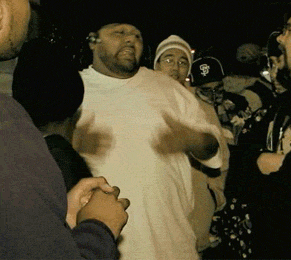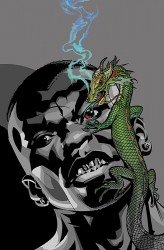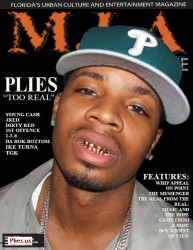
Black History Month ’09 #17: Still Dreaming
February 17th, 2009 Posted by david brothersOne thing Marvel has always pushed, which DC hasn’t, is the idea of social injustice. The X-Men and other mutants are hated and feared. Many of their heroes are outlaws. I think this is a large part of why most black people I’ve talked to preferred Marvel to DC as a kid.
It’s a strictly unscientific survey, but every once and a while I’ll ask my black friends, who I know read comics, what they read as a kid. So far, I think it’s been all Marvel, with a focus on X-Men and Spider-Man. The ’70s pulpy books (Cage, Shang-chi, Moon Knight, Ghost Rider) get a lot of love, too. I’ve always been surprised at the answers I get, though they tend to be the same answer each time. I don’t know if the results are due to some sort of selection bias, but they’ve been pretty true on two different coasts now.
If I had to put my finger on it, a lot of us dug Marvel because we could relate to the fact that the heroes weren’t always on top and that the books took place in more of a real world than DC’s. Superman lived in Metropolis and Batman lived in Gotham, but Spider-Man lived in Queens and Luke Cage in Harlem. They had to struggle for cash, navigate complicated family relationships, and weren’t super jet pilots or scientists. Spidey was extremely smart, and Cage had a heart of gold, but both suffered under the knowledge that no one was going to respect them for that.
Part of the relative lack of black characters in comics meant that we had to learn how to relate growing up. You’d find aspects of characters to latch on to, and these would give you an in. I didn’t get bullied at school, nor did I live in Queens, but I could relate with being smart and having a single parent. I thought the X-Men were cool because they were from all over the place. While Claremont’s pidgin English is quaint these days, as a kid, it just hammered home that they were different, but still accepted one another.
It’s been nice to see comics growing up as I grow up. They’ve gone from vague metaphors to just letting it all hang out, so to speak. Brian Bendis put some fairly well-thought out commentary on racism and unjust laws in New Avengers: Civil War, Marvel’s big event at the time. It was light, and served as the impetus for a fight scene, but he managed to do it without being overly preachy or having someone stand up and pontificate for twenty-two pages.
Milestone may have been ten years ahead of its time. It launched during a glut and told some great stories, but it was during a time when people were more concerned about flipping comics for cash than reading comics for a story. So what if you were trailblazing for an entire industry, this issue of Spider-Man is worth thirty-five dollars. Let me tell you, this is gonna pay for my kid’s college fund!
It’s nice to see Milestone making a come back, and I hope that DC does right by them. An aggressive trade program, one that’s much more aggressive than DC’s current “It’ll be out when it’s out, we just work here, man” program, is necessary. Pound the books out like there’s no tomorrow. Get them in print, in libraries, in bookstores, and into the hands of the people who want to read it.
Push those Milestone books like they were crack. Every four to six weeks, a new book. The market for those books overlaps somewhat with the current comics readership, but there are kids out there who made Static Shock more popular than Pokemon who are hitting their twenties now. Put these books, which are simple enough for kids and layered enough for adults, into their hands.
We’re past the point where we just have to settle for relating. Now, we can see people who look like us in action.









